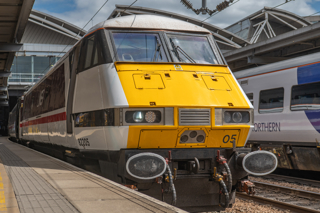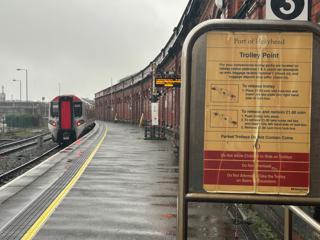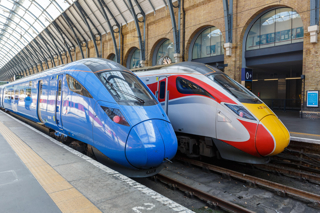Labour's nationalisation plan is driven by ideology, says Christian Wolmar, and it's unclear if or when it will solve the industry's real problems.
How many bills does it need to sort out the railways?
Well, as we now know, there are two on the way in this Parliament. And the first, with the cumbersome name of the Passenger Railway Services (Public Ownership) Bill, passed its initial Commons stages on September 3.
There was a lengthy debate, but it was hardly enlightening, with much of the time being taken up by maiden speeches (more than half the MPs are new) on subjects that had nothing to do with the railways.
The purpose of this Bill is simple: to allow the government to take over franchises as the present contracts come to an end or are up for review. No longer will the government have to wait for operators to get into trouble before it can pounce and add to its collection of four franchises under the aegis of the Operator of Last Resort. Instead, the default position will be to take them over.
Transport Secretary Louise Haigh reiterated the reasons for this Bill, pointing out the way that the performance of the railways had collapsed under the Conservatives.
But while that is true, we have heard all this before. What we need to know now is precisely how Labour’s solution of bringing the franchises back in-house is going to address the fundamental failings of the rail industry.
In a well-researched and coherent speech, Shadow Transport Secretary Helen Whately, who is new to this field given that she was minister for social care in the previous government, complained about the haste with which the Bill was being pushed through.
She is right that this is being done hastily, although that is not necessarily a bad thing. Labour had expressed clear intent about its plans in the manifesto, and it is well within its rights to press home with a policy that had been well prepared in advance of the election.
The priority being accorded to this policy by the new government is because of its eagerness to show that reversing a key Conservative policy - the privatisation of the railways - was a failure. The railways are seen as emblematic of the much wider political failings of their Tory predecessors, which is why Labour ministers are so keen to push this policy through.
When Whately complains that this is based on an ideological policy, she is right.
But then, as I have written so many times, the Tory privatisation of the railways after the 1992 election was purely driven by ideology, as by then British Rail was running the most efficient railway in Europe and meeting both its commercial and social goals.
The importance of the railways to the Labour government’s project is both good and bad news for the industry.
The good news is that sorting out a new, more coherent, structure for the industry has long been recognised as a priority.
Remember, this whole process of change was started by the Conservatives after the May 2018 timetable debacle. The industry has been in a period of limbo ever since, with the creation of the Great British Railways Transition Team, which ran up spending of at least £64 million (and probably much more, given this figure did not include the organisation’s work on ticketing reform), without so far showing any concrete results. So, getting on towards rapidly establishing the new structure for the railways is undoubtedly a positive.
The problem is that it remains unclear whether the new ministers have a clear understanding of what they are trying to do, and (most important) how it will show results quickly enough to justify the haste and the upheaval.
Little is known about the precise nature of the second Bill, which is likely to be presented to Parliament early in the New Year. But some indications about it were given in a separate announcement by Haigh confirming that she would be creating a new organisation to be called Great British Railways - despite the fact that this was Boris Johnson’s baby.
In the announcement, Haigh set out five missions for the Shadow GBR she launched (everything for this government is about ‘missions’, and usually five of them), much of which are considered highly worthy such as “improving services for passengers and freight customers” and “delivering financial stability”.
But the interesting bit over which people in the industry are seeking clarity is the leadership of this new organisation.
There is much talk, for example, about who will chair it. But in a way that is an irrelevance. Haigh has already said she will be the ‘passenger in chief’ and therefore will be expected to make (or at least oversee) major decisions.
Confusion remains, however, over the precise structure of the railways once GBR has been established.
This is a work in progress, as one of the missions is rather confusingly termed “designing end state GBR”. In other words, the Shadow GBR will be tasked with devising the structure of the permanent organisation.
We are, therefore, no further forward in the pre-election debate over whether GBR will be “Network Rail with lipstick” (as one insider put it) or a completely new organisation with a group of directors appointed by Haigh, and who will run the show.
Interestingly, in her letter to stakeholders, she emphasised that this new organisation will not interfere with any of the existing duties and accountabilities of the various existing players - the Department for Transport, Network Rail, the Operator of Last Resort, etc.
Therefore, we await with bated breath what emerges from this. But we are no nearer any clear indication of what is in store after the second bill is passed.

















Login to comment
Comments
No comments have been made yet.